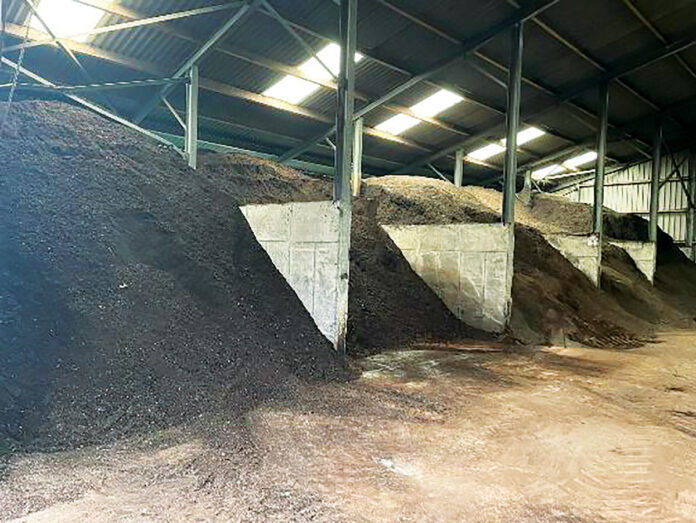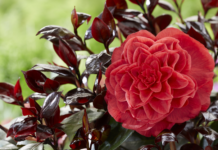In 2018, I joined the company Celignis, a biomass lab located in Limerick, Ireland. Celignis CEO Daniel Hayes started the company based on his PhD work on understanding the chemistry of biomass through rapid analysis.
I’ve taken part in expanding Celignis’s initial service offerings to biorefineries to the wider community, including farmers, composters, biochar producers, anaerobic digestion plants operators, etc. Celignis has more than 1,000 clients across the world in different sectors. All the projects we do are focused on natural alternatives for synthetic products.
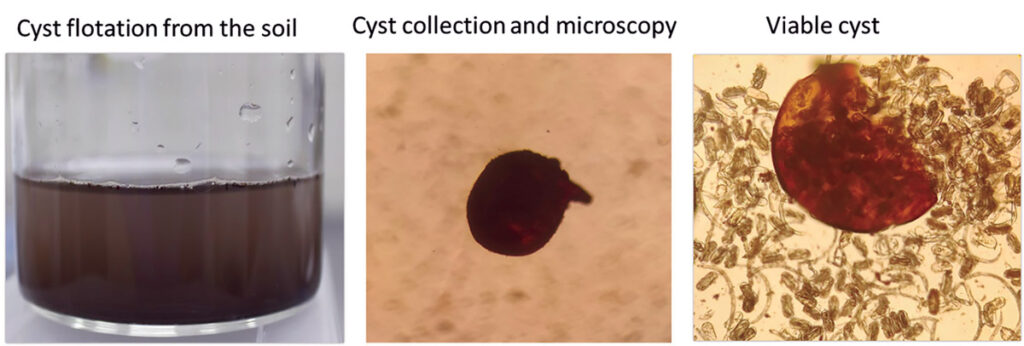
John Browne from De Brún Iasc Teo, a crab-processing facility based in Ballinboula, Dingle, Co Kerry, contacted me to help him unravel the potential of the compost they are producing from crab shell waste. This was the start of the relationship between Celignis and De Brún Iasc Teo.
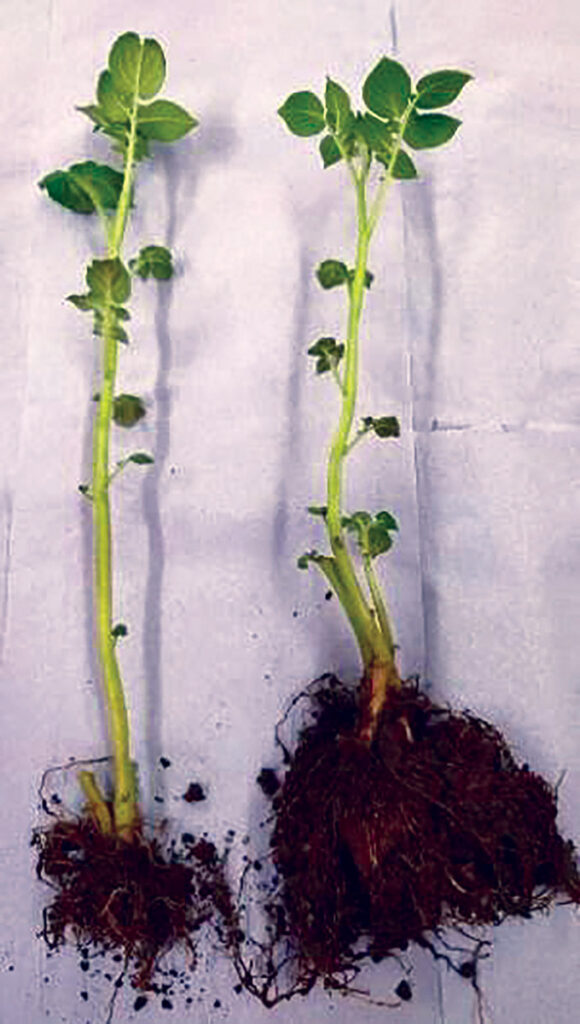
De Brún Iasc Teo crab shell compost was started by John’s parents, Ted and Hannah Mae Browne, in 1984. Ted believed there had to be a better way to deal with crab shell waste than dumping it in the oceans or landfills. No one was doing crab shell compost in Ireland, so Ted had to find his own ways to compost it efficiently.
The result is the unique compost – the De Brún Iasc Teo ‘organic soil conditioner’ – being produced in the facility. This compost is rich in chitin from crab shells and other bioactives originating from the plant materials used in the compost process.
I was fascinated by the story of the De Brún Iasc Teo facility, and by John’s interest in understanding the family’s unique product at scientific level. Thus, Celignis took up a research project on the chitin-rich compost to understand and evaluate its potential to replace synthetic fertilisers and pesticides.
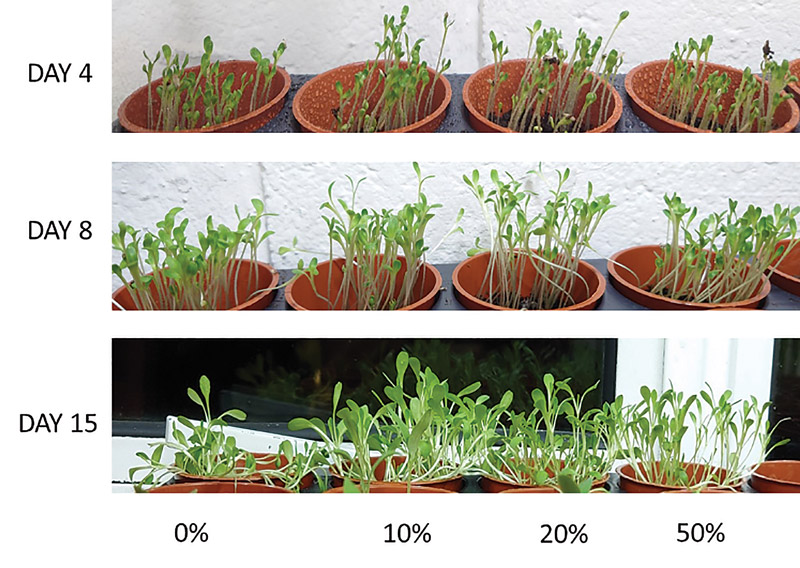
Our research is focused on testing the compost as a plant protectant and plant growth promoter, for which a root knot nematode-infested potato farm was selected for the field trial. Celignis received the soil samples from the infested potato field and tested the extent of infection in the soil. It was found that the soil was heavily infected with nematodes and plant-infesting (phytopathogens) microbes.
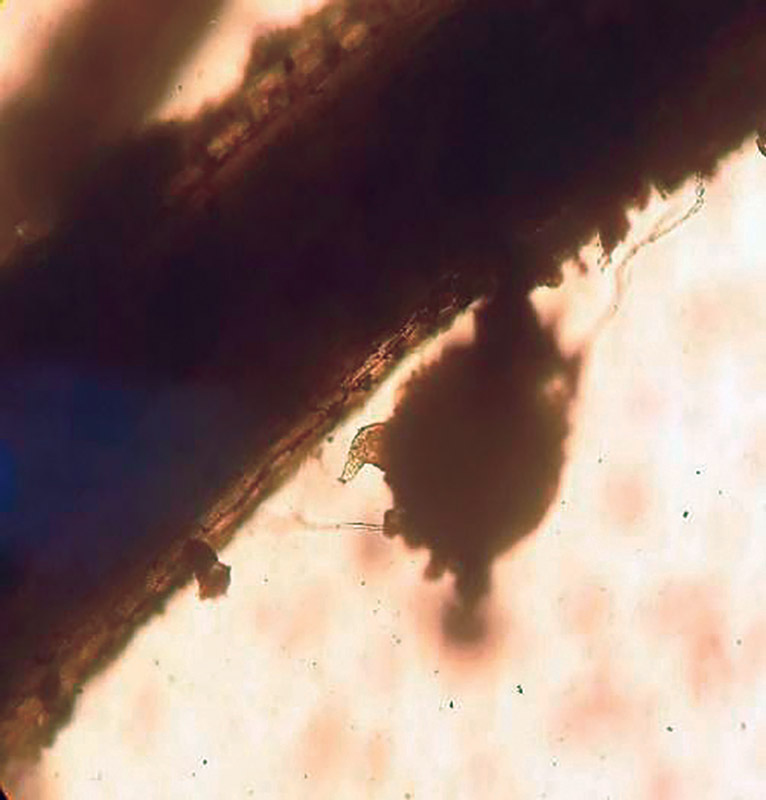
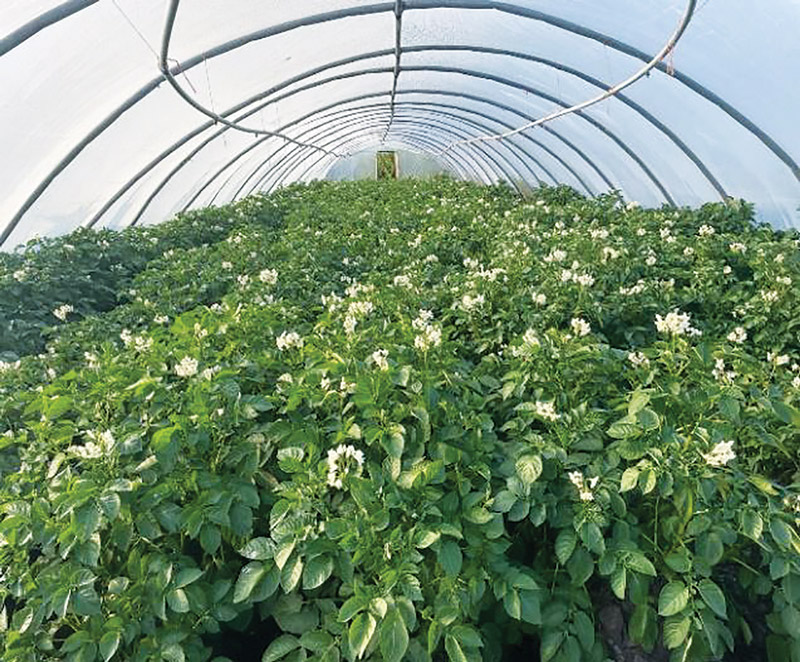
John worked with the potato grower and applied the chitin compost to his field. Soil samples from ten different locations in the field were collected once every week by following standard sampling protocols. John delivered the samples personally to Celignis on the same day they were collected.
At Celignis, once the soil samples were received, our microbiology lab manager, Patrycja Burczynska, tested the samples for phytopathogenic bacterial, fungal and root knot nematode cyst counts. To ensure the results seen from the fields were reproducible, we undertook in-house potato plant growth trials at Celignis in the highly infested soil obtained from the potato farm.
From both lab and field trials, the results on pathogen count reduction were astonishing. There was a 50 per cent reduction in nematode cysts within three weeks of chitin compost application. There was also a change in the microbiome of the soil, with beneficial bacteria overtaking the phytopathogens.
The potato plants grown in the lab with the chitin compost in the infested soil did not show any sign of infection, while the plants grown without compost application showed good shoot growth but had poor root development and cysts on the roots. The field trial with chitin compost was highly successful, with potato plants growing healthier and giving a good harvest.
In the lab, the chitin compost was also tested for its ability to replace peat for its water-holding capacity. The results have shown that the chitin compost increases draught resistance in plants. The lettuce with 0 per cent compost wilted by day 15, while plants in the pots with 10, 20 and 50 per cent compost applications showed no wilt.
The chitin compost from De Brún Iasc Teo is certified organic with the Irish Organic Association. John and his wife Aiste also test the compost in their small backyard garden for growing vegetables, and they are seeing very good results.
“It’s not just the high yield,” say John and Aiste, “but also the vegetables’ colour, shine and taste that make us think the chitin compost has very high potential in horticulture.” In addition to this, the potato grower who we’ve worked with is seeing some great results for the second year.
John is continuing to work with Celignis to explore the highest potential of the chitin compost, and is excited for its future opportunities, as more positive results from Celignis’s research are expected this year.
For more information about organic chitin compost from De Brún Iasc Teo, contact john@debrun.ie. ✽
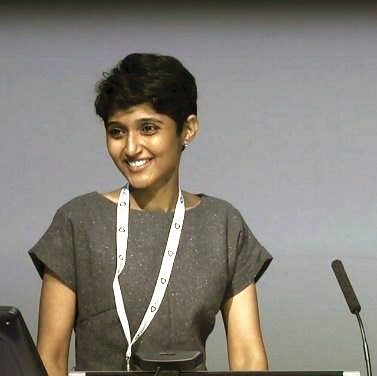 LALITHA GOTTUMAKKALA is chief innovation officer at Celignis Limited, Ireland. She has a PhD in biotechnology with years of experience in microbiology and bioprocess engineering. Her research topic areas cut across different disciplines ranging from recombinant enzymes and biochemicals to anaerobic digestion and composting. lalitha@celignis.com
LALITHA GOTTUMAKKALA is chief innovation officer at Celignis Limited, Ireland. She has a PhD in biotechnology with years of experience in microbiology and bioprocess engineering. Her research topic areas cut across different disciplines ranging from recombinant enzymes and biochemicals to anaerobic digestion and composting. lalitha@celignis.com


